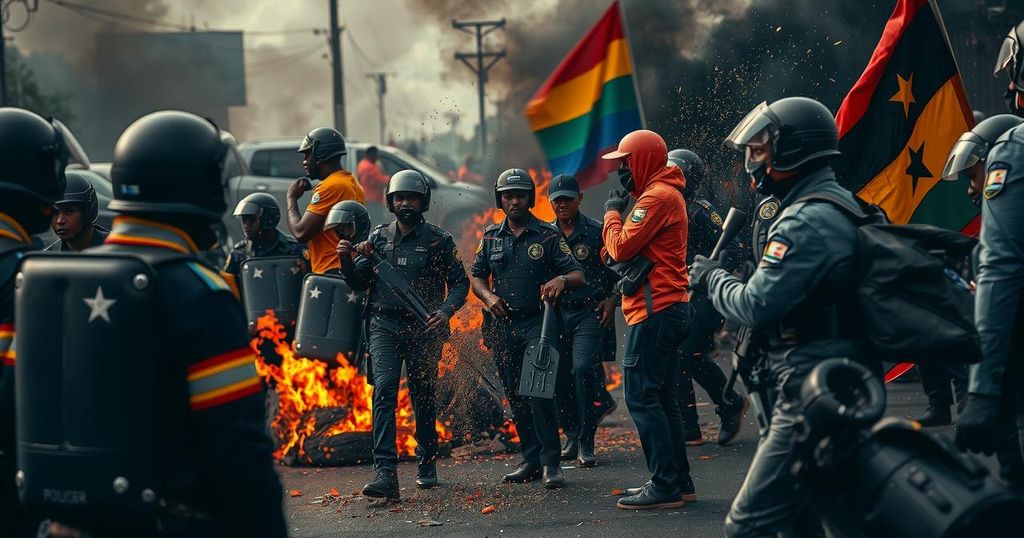Mozambique police used tear gas to disperse protesters in Maputo amid claims of electoral fraud following the October 9 elections. With escalating unrest leading to at least 18 fatalities, opposition leaders are calling attention to the claims of falsified election results and the urgent need for human rights protections amidst government warnings of military intervention.
In Maputo, Mozambique, police deployed tear gas to disperse large crowds protesting the results of the October 9 elections, which have been marred by allegations of fraud. Thousands of demonstrators filled the streets, prompting riot police to take action against the unrest that has claimed at least 18 lives, according to Human Rights Watch. The ruling FRELIMO party, led by Daniel Chapo, reportedly received 70.67% of the votes, while the main opposition, led by Venancio Mondlane, received 20.32%. Attending forces have been seen patrolling the areas, reflecting escalating tensions and government warnings of potential military intervention to safeguard state interests.
The protests in Mozambique emerged following controversial election results that have sparked national unrest. Opposition parties, particularly RENAMO, claim that the elections were marred by fraud, causing widespread discontent among citizens. The violent response from law enforcement reflects the charged political environment and concerns from various human rights organizations, including the United Nations, regarding the use of excessive force against demonstrators. The current situation has also disrupted transportation systems with implications for neighboring South Africa, highlighting the broader regional impact of the unrest.
The situation in Mozambique remains tense as protests continue in response to disputed election results. With ongoing accusations of electoral fraud and increasing violence, calls for the protection of human rights are being emphasized by local and international observers. The actions taken by security forces and the government’s stance toward potential military intervention suggest that the political climate in Mozambique is precarious, with significant implications for its future governance and stability.
Original Source: www.dw.com






